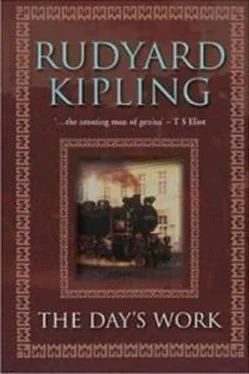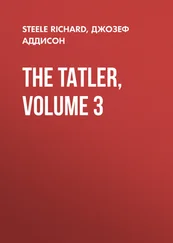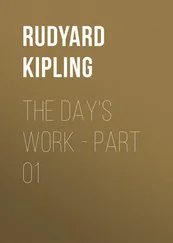Джозеф Киплинг - The Day's Work - Volume 1
Здесь есть возможность читать онлайн «Джозеф Киплинг - The Day's Work - Volume 1» весь текст электронной книги совершенно бесплатно (целиком полную версию без сокращений). В некоторых случаях можно слушать аудио, скачать через торрент в формате fb2 и присутствует краткое содержание. Год выпуска: 2014, Издательство: epubBooks Classics, Жанр: Прочие приключения, на английском языке. Описание произведения, (предисловие) а так же отзывы посетителей доступны на портале библиотеки ЛибКат.
- Название:The Day's Work - Volume 1
- Автор:
- Издательство:epubBooks Classics
- Жанр:
- Год:2014
- ISBN:нет данных
- Рейтинг книги:3 / 5. Голосов: 1
-
Избранное:Добавить в избранное
- Отзывы:
-
Ваша оценка:
- 60
- 1
- 2
- 3
- 4
- 5
The Day's Work - Volume 1: краткое содержание, описание и аннотация
Предлагаем к чтению аннотацию, описание, краткое содержание или предисловие (зависит от того, что написал сам автор книги «The Day's Work - Volume 1»). Если вы не нашли необходимую информацию о книге — напишите в комментариях, мы постараемся отыскать её.
The Day's Work - Volume 1 — читать онлайн бесплатно полную книгу (весь текст) целиком
Ниже представлен текст книги, разбитый по страницам. Система сохранения места последней прочитанной страницы, позволяет с удобством читать онлайн бесплатно книгу «The Day's Work - Volume 1», без необходимости каждый раз заново искать на чём Вы остановились. Поставьте закладку, и сможете в любой момент перейти на страницу, на которой закончили чтение.
Интервал:
Закладка:
"So it has," said Hitchcock, chuckling. "I overheard him the other day in the middle of a most atheistical talk with that fat old guru of theirs. Peroo denied the efficacy of prayer; and wanted the guru to go to sea and watch a gale out with him, and see if he could stop a monsoon."
"All the same, if you carried off his gurus he'd leave us like a shot. He was yarning away to me about praying to the dome of St. Paul's when he was in London."
"He told me that the first time he went into the engine–room of a steamer, when he was a boy, he prayed to the low–pressure cylinder."
"Not half a bad thing to pray to, either. He's propitiating his own Gods now, and he wants to know what Mother Gunga will think of a bridge being run across her. Who's there?" A shadow darkened the doorway, and a telegram was put into Hitchcock's hand.
"She ought to be pretty well used to it by this time. Only a tar. It ought to be Ralli's answer about the new rivets…. Great Heavens!" Hitchcock jumped to his feet.
"What is it?" said the senior, and took the form. "That's what Mother Gunga thinks, is it," he said, reading. "Keep cool, young'un. We've got all our work cut out for us. Let's see. Muir wired half an hour ago: 'Floods on the Ramgunga. Look out.' Well, that gives us—one, two—nine and a half for the flood to reach Melipur Ghaut and seven's sixteen and a half to Lataoli—say fifteen hours before it comes down to us."
"Curse that hill–fed sewer of a Ramgunga! Findlayson, this is two months before anything could have been expected, and the left bank is littered up with stuff still. Two full months before the time!"
"That's why it comes. I've only known Indian rivers for five–and–twenty years, and I don't pretend to understand. Here comes another tar." Findlayson opened the telegram. "Cockran, this time, from the Ganges Canal: 'Heavy rains here. Bad.' He might have saved the last word. Well, we don't want to know any more. We've got to work the gangs all night and clean up the river–bed. You'll take the east bank and work out to meet me in the middle. Get every thing that floats below the bridge: we shall have quite enough rivercraft coming down adrift anyhow, without letting the stone–boats ram the piers. What have you got on the east bank that needs looking after."
"Pontoon—one big pontoon with the overhead crane on it. T'other overhead crane on the mended pontoon, with the cart–road rivets from Twenty to Twenty–three piers—two construction lines, and a turning–spur. The pilework must take its chance," said Hitchcock.
"All right. Roll up everything you can lay hands on. We'll give the gang fifteen minutes more to eat their grub."
Close to the verandah stood a big night–gong, never used except for flood, or fire in the village. Hitchcock had called for a fresh horse, and was off to his side of the bridge when Findlayson took the cloth–bound stick and smote with the rubbing stroke that brings out the full thunder of the metal.
Long before the last rumble ceased every night–gong in the village had taken up the warning. To these were added the hoarse screaming of conches in the little temples; the throbbing of drums and tom–toms; and, from the European quarters, where the riveters lived, McCartney's bugle, a weapon of offence on Sundays and festivals, brayed desperately, calling to "Stables." Engine after engine toiling home along the spurs at the end of her day's work whistled in answer till the whistles were answered from the far bank. Then the big gong thundered thrice for a sign that it was flood and not fire; conch, drum, and whistle echoed the call, and the village quivered to the sound of bare feet running upon soft earth. The order in all cases was to stand by the day's work and wait instructions. The gangs poured by in the dusk; men stopping to knot a loin–cloth or fasten a sandal; gang–foremen shouting to their subordinates as they ran or paused by the tool–issue sheds for bars and mattocks; locomotives creeping down their tracks wheel–deep in the crowd; till the brown torrent disappeared into the dusk of the river–bed, raced over the pilework, swarmed along the lattices, clustered by the cranes, and stood still each man in his place.
Then the troubled beating of the gong carried the order to take up everything and bear it beyond highwater mark, and the flare–lamps broke out by the hundred between the webs of dull iron as the riveters began a night's work, racing against the flood that was to come. The girders of the three centre piers—those that stood on the cribs—were all but in position. They needed just as many rivets as could be driven into them, for the flood would assuredly wash out their supports, and the ironwork would settle down on the caps of stone if they were not blocked at the ends. A hundred crowbars strained at the sleepers of the temporary line that fed the unfinished piers. It was heaved up in lengths, loaded into trucks, and backed up the bank beyond flood–level by the groaning locomotives. The tool–sheds on the sands melted away before the attack of shouting armies, and with them went the stacked ranks of Government stores, iron–bound boxes of rivets, pliers, cutters, duplicate parts of the riveting–machines, spare pumps and chains. The big crane would be the last to be shifted, for she was hoisting all the heavy stuff up to the main structure of the bridge. The concrete blocks on the fleet of stone–boats were dropped overside, where there was any depth of water, to guard the piers, and the empty boats themselves were poled under the bridge down–stream. It was here that Peroo's pipe shrilled loudest, for the first stroke of the big gong had brought the dinghy back at racing speed, and Peroo and his people were stripped to the waist, working for the honour and credit which are better than life.
"I knew she would speak," he cried. "I knew, but the telegraph gives us good warning. O sons of unthinkable begetting—children of unspeakable shame—are we here for the look of the thing?" It was two feet of wire–rope frayed at the ends, and it did wonders as Peroo leaped from gunnel to gunnel, shouting the language of the sea.
Findlayson was more troubled for the stone–boats than anything else. McCartney, with his gangs, was blocking up the ends of the three doubtful spans, but boats adrift, if the flood chanced to be a high one, might endanger the girders; and there was a very fleet in the shrunken channel.
"Get them behind the swell of the guard–tower," he shouted down to Peroo. "It will be dead–water there. Get them below the bridge."
"Accha! [Very good.] I know; we are mooring them with wire–rope," was the answer. "Heh! I Listen to the Chota Sahib. He is working hard."
From across the river came an almost continuous whistling of locomotives, backed by the rumble of stone. Hitchcock at the last minute was spending a few hundred more trucks of Tarakee stone in reinforcing his spurs and embankments.
"The bridge challenges Mother Gunga," said Peroo, with a laugh. "But when she talks I know whose voice will be the loudest."
For hours the naked men worked, screaming and shouting under the lights. It was a hot, moonless night; the end of it was darkened by clouds and a sudden squall that made Findlayson very grave.
"She moves!" said Peroo, just before the dawn. "Mother Gunga is awake! Hear!" He dipped his hand over the side of a boat and the current mumbled on it. A little wave hit the side of a pier with a crisp slap.
"Six hours before her time," said Findlayson, mopping his forehead savagely. "Now we can't depend on anything. We'd better clear all hands out of the river–bed."
Again the big gong beat, and a second time there was the rushing of naked feet on earth and ringing iron; the clatter of tools ceased. In the silence, men heard the dry yawn of water crawling over thirsty sand.
Читать дальшеИнтервал:
Закладка:
Похожие книги на «The Day's Work - Volume 1»
Представляем Вашему вниманию похожие книги на «The Day's Work - Volume 1» списком для выбора. Мы отобрали схожую по названию и смыслу литературу в надежде предоставить читателям больше вариантов отыскать новые, интересные, ещё непрочитанные произведения.
Обсуждение, отзывы о книге «The Day's Work - Volume 1» и просто собственные мнения читателей. Оставьте ваши комментарии, напишите, что Вы думаете о произведении, его смысле или главных героях. Укажите что конкретно понравилось, а что нет, и почему Вы так считаете.












